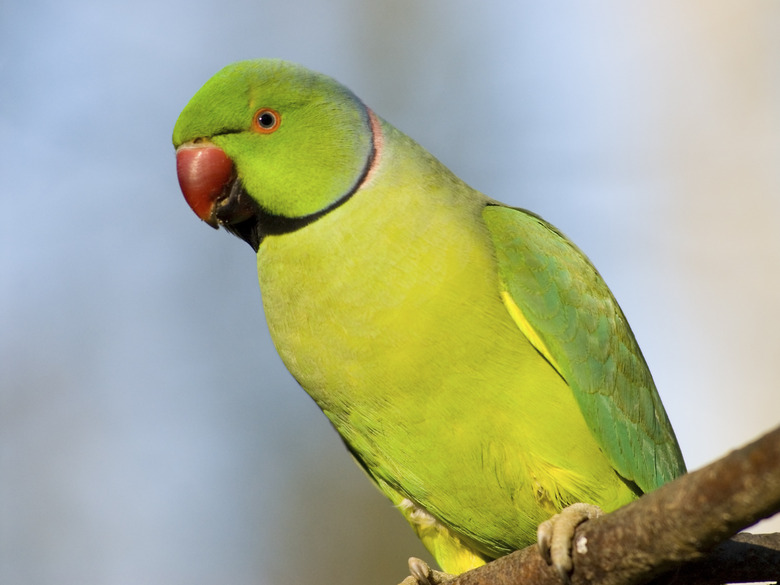What Fruits & Vegetables Can Parakeets Eat?
When people think of the best food for parakeets, seeds usually come to mind, but parakeets thrive on a varied, omnivorous diet. Budgies and other parakeets get nutrients from seeds, fruits, vegetables, and insects. Fruits and vegetables are some of the best foods for parakeets, though some are not suitable and can make pet birds sick.
Parakeets are one of the best pet birds that talk for good reason. They live to be around 6 to 12 years on average when kept in captivity. Parakeets are cheerful and affectionate, and they love to sing and chat with their owners. Keeping your bird healthy can help him live a long, happy life with you, so learn the best food for parakeets and offer a bird-safe diet of fruits, vegetables, and high-protein foods.
The best food for parakeets
The best food for parakeets
Parakeets eat a combination of foods. They consume a variety of plants, including seeds, fruits, and vegetables. These birds also consume many insects in the wild and need a lot of protein in their diet from store-bought seed mixes as well as fresh food sources.
Most protein should come from plant sources, like legumes. Plain, cooked meats; tuna in water; and hard-boiled eggs can be given every so often, but you should watch for additives and avoid seasonings and sauces that can make your bird sick. Bird-safe seeds should not be fed exclusively. Instead, parakeets need a varied diet of nutrient-rich foods to stay healthy.
You should break up a parakeet's diet by giving proportions of around 20 percent vegetables, 10 percent legumes, 5 percent fruits, and 75 percent pellets or a combination of pellets and seeds in addition to occasional treats and fresh water being made available at all times.
Parakeet fruits and vegetables
Parakeet fruits and vegetables
In total, fruits and vegetables should not make up more than 30 percent of your parakeet's diet. Your veterinarian can help you decide what amount is best for your bird. Fruits and vegetables are most beneficial to your parakeet when served raw so she can get the most nutrients from them. Produce that is frozen or canned in 100 percent juice is also a good option, though cooked produce is not as healthy for birds.
When choosing produce for your parakeet, seek out vivid vegetables. Cut them into bird-size bites but not too small since birds will have fun biting and chewing bigger fruits and vegetables. Introduce them gradually and offer a variety to your bird. Squash, papaya, mangoes, cantaloupe, sweet potatoes, and bell peppers are all good choices.
What birds should not eat
What birds should not eat
Some foods may make birds feel sick, or they may just not enjoy them. Veterinarians advise against giving birds dairy and suggest that some foods, like peanuts and grits, can be fed in small amounts but are generally not recommended. Other foods are toxic and dangerous to parakeets and other birds and should be avoided completely.
Never give birds chocolate, fruits with pits or apple seeds, comfrey, avocado, onion, garlic, caffeinated beverages, and anything containing xylitol, such as sugar fruit candies or snacks. These foods are poisonous to birds even in small amounts. If you suspect your bird has eaten one of these items, take him to the veterinarian immediately.
Best pet birds that talk
Best pet birds that talk
People usually think of parrots as the best pet birds that talk, but parakeets can also learn to imitate human language. Budgies, the most common type of parakeet, are gentle and loving, and they enjoy interacting with others. If you adopt a budgie when she is young, you will have the most success in training her.
This curious bird loves to learn, and one of the skills you can teach your pet parakeet is how to talk. Parakeets can learn a series of words and phrases. If you care for them with love and a healthy diet and put in the time to help them learn, parakeets can pick up on many words.
